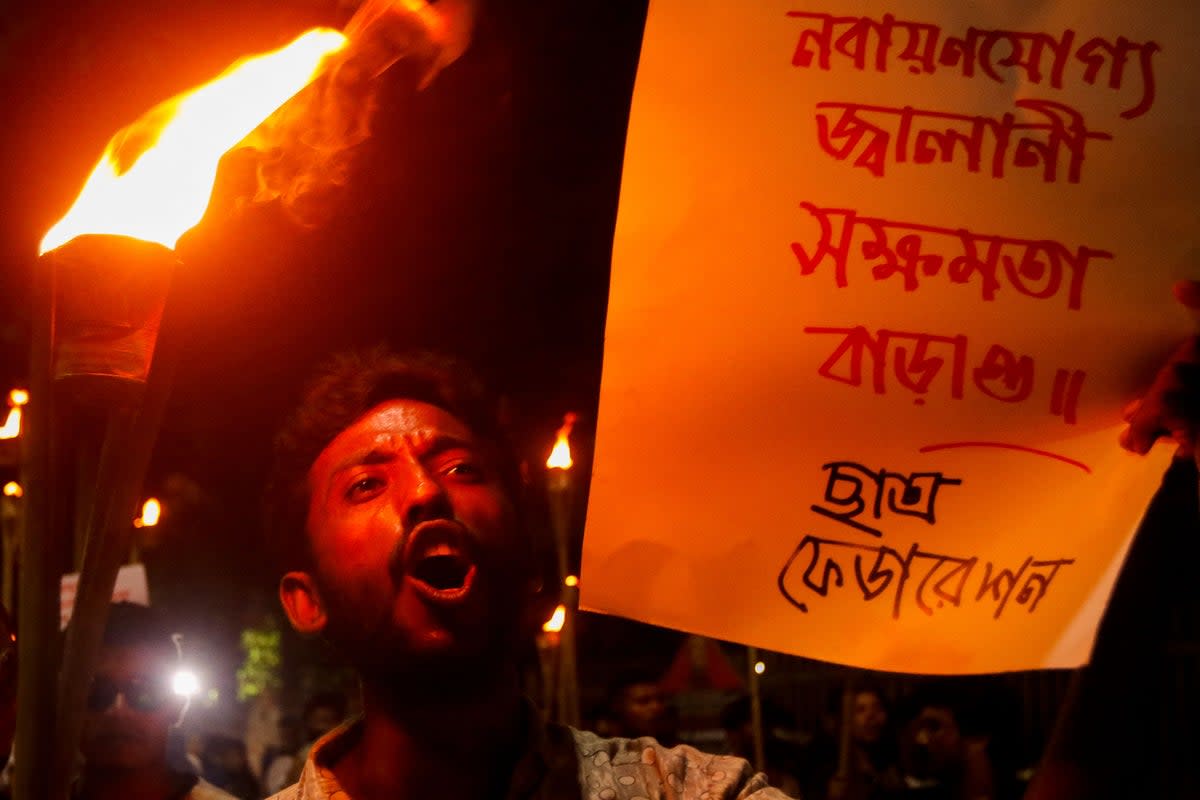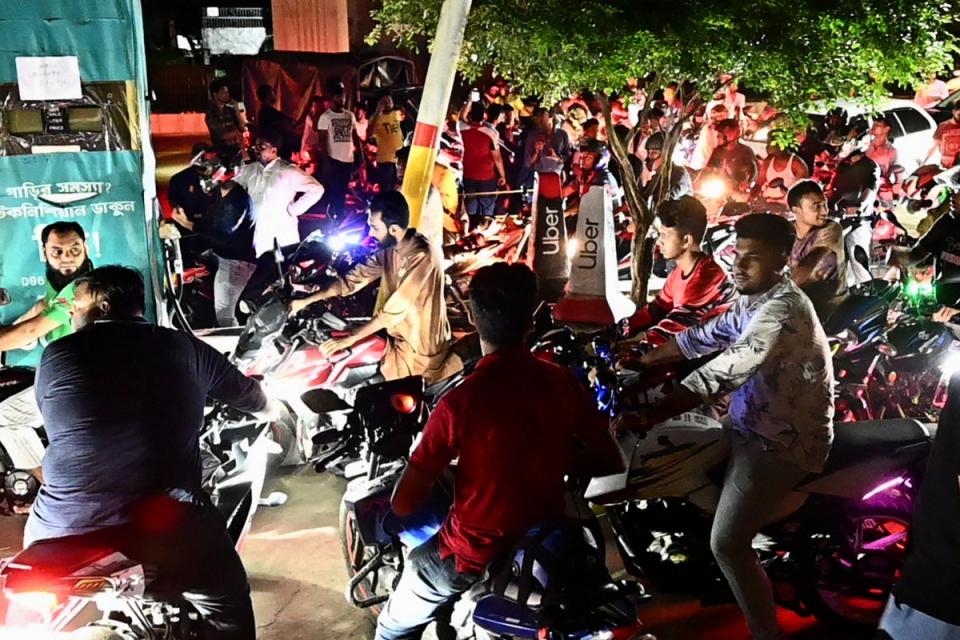Massive protests erupt in Bangladesh over fuel price hike

Thousands of distressed Bangladeshis took to the streets in protest against the government's decision to hike fuel prices by nearly 52 per cent amid dwindling foreign reserves.
The Sheikh Hasina government increased petrol prices by 51.2 per cent to $1.38 a litre, 95-octane gasoline by 51.7 per cent to $1.44 and diesel and kerosene by 42.5 per cent. The hike has been touted to be the highest since the country’s independence in 1971.
While the South Asian country’s $416bn economy has been one of the fastest-growing in the world for years, the hike in fuel prices is likely to put more pressure on its inflation, which hit 7.48 per cent in July.
“The new prices will not seem tolerable to everyone. But we had no other choice. People have to be patient,” Nasrul Hamid, state minister for power, energy and mineral resources, told reporters over the weekend.
The energy ministry stated that the price increase was inevitable given the condition of the global market in the wake of Russia's war in Ukraine. It added that state-run Bangladesh Petroleum Corporation had incurred a loss of more than $85m in oil sales in the first six months of the year.
Mr Hamid argued that prices would be adjusted once global prices fall.
“It was necessary but I never imagined such a drastic hike. I don’t know whether the government is fulfilling the prerequisite to have an IMF [International Monetary Fund] loan,” a government official said.
Shortly after the government’s announcement, many Bangladeshis, including students, poured onto the streets of capital Dhaka, raising slogans against prime minister Sheikh Hasina, while others rushed to fuel stations, forming serpentine queues.
In the eastern city of Sylhet, retailers tried to impose higher prices immediately after the announcement.
“People gathered and protested in front of all the fuel pumps in Sylhet city,” police commissioner Md Nisharul Arif told AFP.
Demonstration in Dhaka, Bangladesh against record fuel price hikes and the country's energy crisis. Protests are happening daily for two weeks. #Inflation #Bangladesh #Dhaka #EnergyCrisis pic.twitter.com/4hdWLUIhin
— We Are Protestors (@WeAreProtestors) August 7, 2022
The fuel crisis in Bangladesh had reportedly led to electricity blackouts of up to 13 hours a day.
“Not only is the price hike extremely distressing, but several fuel stations have run out of petrol,” Nurul Ali, a private bank employee, who took part in one of the street protests, told The Independent.
“On Saturday, I went to three different fuel stations to secure petrol. After waiting for hours in the queue, we were told the place had run out of petrol. This is just the beginning, thing will get worse now,” he added.
The government had last raised diesel and kerosene prices by 23 per cent in November, which had in turn prompted a nearly 30 per cent rise in transport fares.
The drastic price hike has also stirred political unrest with the leaders of the ally of the ruling Awami League criticising the move publicly.

Rashed Khan Menon, president of the communist Workers’ Party, said the move was a “desperate decision” of the government.
“It will have a huge impact – politically, socially and financially – on the lives of the people,” he told Bangladesh-based Daily Star.
Terming the government’s move as “rubbing salt in the wounds”, main opposition Bangladesh Nationalist Party (BNP) secretary general Mirza Fakhrul Islam Alamgir said the hike would have a terrible impact on the economy.
Dhaka has reportedly asked the IMF for $4.5bn in support.
To stop the depletion of foreign reserves, the government has taken a series of measures, including placing curbs on luxury goods imports and on fuel imports including liquefied natural gas (LNG) and shutting diesel-run power plants.
The country’s foreign exchange reserves stood at $39.67bn as of 3 August, which is expected to cover only about five months of imports.

 Yahoo News
Yahoo News 
